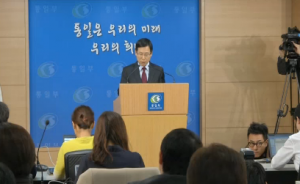
(Reuters) — North Korea proposed to hold a working-level meeting with South Korea to discuss the reunions of families separated since the Korea War that divided the neighbours, the SouthKorean Unification Ministry said on Monday (February 3).
“The North Korean side accepted our Red Cross’s (earlier) offer to hold a working-level meeting to discuss the reunion of separated families and proposed to hold a working-level meeting in the northern side of the Panmunjom on February 5 or 6 at a convenient time for us,” said the ministry spokesman Kim Eui-do.
The North’s offer was in response to the South’s proposal on January 27 to hold reunions of families separated by the 1950-53 Korean War at Mount Kumgang on February 17-22.
“We welcome the North’s response, even if it was belated, and we will notify the North after discussions with related departments regarding the date of the working-level meeting,” Kim added.
If the two Koreas agree to hold the reunions, it would be the first such event in more than three years.
North Korean media have been trumpeted the country’s longstanding demand for a halt to the military drills, a frequent sticking point in the rivals’ effort to improve ties.
The North calls the drills a prelude to war, despite the South’s denial and assurance that they are defensive exercises that have been held for decades with no major incident.
Tensions soared last year as Pyongyang reacted angrily to tightened U.N. sanctions imposed in response to its latest nuclear test.
The two Koreas remain technically at war, as their 1950-53 civil conflict ended in a truce and not a peace treaty. The war left millions of families divided, with private travel across the border and communication, including phone calls, banned.








